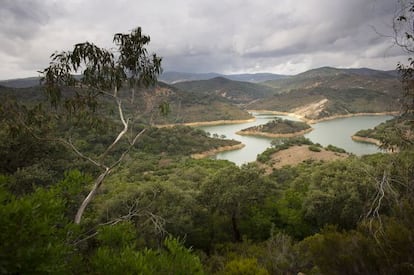State auditor finds irregularities in accounts of National Parks agency
Report laments lack of inventory control over the its extensive assets

The State Public Accounts Department has detected irregular accounting in Spain’s National Parks agency. The problems are so serious that the audit body is refusing to issue an assessment of its 2012 accounts until it gets some answers.
Up to 87 percent of assets held by the National Parks agency, worth an estimated 247 million euros, “have not been identified, and a lack of internal oversight makes it impossible to check whether those assets really exist or what conditions they are in, all of which hampers efforts at evaluating their impact on the accounts for the 2012 fiscal year,” state auditor Elena Luengo said in report.
The auditor also criticized the fact that “there is no inventory as such” of existing estates, infrastructure and other assets, nor is there an independent department to keep tabs on this list.
The Agriculture and Environment Ministry said that there are “no irregularities” and that it is working on an inventory of assets “that should have been available 10 years ago.”
This is not the first warning the National Parks agency has received. Last year, the audit body had already raised the alarm about the accounting chaos that reigns within the agency, which is now headed by Basilio Rada.
The 140 employees of the agency coordinate a network of 15 national parks, besides managing the regional parks of Cabañeros and Tablas de Daimiel, which were never transferred to the region of Castilla-La Mancha.
The National Parks agency owns an endless list of estates, mountain huts, visitor centers, offices, workshops, warehouses, bars and recreation areas. These are the assets that auditors have questions about. The agency also manages institutional estates like Quintos de Mora and La Encomienda de Mudela, where the royal family used to hunt partridges.
The state comptroller also found that the agency’s publications department does not monitor takings from the books that it sells. Nor has the agency reflected the handover of assets such as the forest fire fighting base of Serradilla in the province of Cáceres, inside Monfragüe National Park, to the regional government of Extremadura.
The auditor’s report notes that the divergence between the audit experts and the parks agency began last summer, when the latter was forced to restate its accounts and write down 54 million euros in assets. But even this was not enough, and auditor Elena Luengo insisted on her initial conclusions and refused to put her seal of approval on the accounts. The parks agency said it would “clean up” its books and make an inventory of its assets.
This is just the latest episode of media scrutiny under Rada’s controversial tenure. A fan of hunting, in January of last year Rada participated in a hunting expedition in an estate owned by the prominent businessman Alberto Alcocer, along the border with Cabañeros Park. The deer and wild boar hunt was authorized in an area that partly penetrated into the park, where hunting is forbidden. Rada alleged that no hunters actually entered the area concerned. After this newspaper published the story, Rada fired park director Manuel Carrasco, a well-respected expert in the field.
Now, a legal reform underway will allow the owners of estates that lie inside national parks to hunt there as a means of controlling animal populations.
Rada, who was also parks director under the conservative Popular Party administration of former Prime Minister José María Aznar, spent eight years as director of La Encomienda de Mudela, a palace estate in Ciudad Real where the king used to hunt partridges. Once he was appointed parks director again, Rada renewed the hunting license in Mudela even though King Juan Carlos no longer hunts there.
Although, as deputy director general, he does not have the right to an official car, ministry sources said that Rada keeps a chauffeur with public funds. This newspaper unsuccessfully tried to obtain Rada’s version of events.
A controversial rental
Tu suscripción se está usando en otro dispositivo
¿Quieres añadir otro usuario a tu suscripción?
Si continúas leyendo en este dispositivo, no se podrá leer en el otro.
FlechaTu suscripción se está usando en otro dispositivo y solo puedes acceder a EL PAÍS desde un dispositivo a la vez.
Si quieres compartir tu cuenta, cambia tu suscripción a la modalidad Premium, así podrás añadir otro usuario. Cada uno accederá con su propia cuenta de email, lo que os permitirá personalizar vuestra experiencia en EL PAÍS.
¿Tienes una suscripción de empresa? Accede aquí para contratar más cuentas.
En el caso de no saber quién está usando tu cuenta, te recomendamos cambiar tu contraseña aquí.
Si decides continuar compartiendo tu cuenta, este mensaje se mostrará en tu dispositivo y en el de la otra persona que está usando tu cuenta de forma indefinida, afectando a tu experiencia de lectura. Puedes consultar aquí los términos y condiciones de la suscripción digital.








































